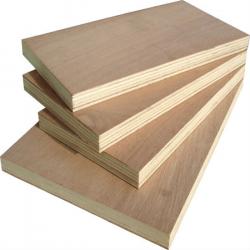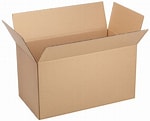HONEY PRODUCT CERTIFICATION
Bee products certification confirms that honey was sourced in a transparent manner and tested for authenticity. When consumers buy honey or honey-containing products bearing the Certification logo, they can trust that these products contain authentic and fully traceable honey.
BENEFITS OF CERTIFICATION FOR HONEY PRODUCTS
1) Ensures that one can be certain that they are buying a genuine safe product, produced in line with standards’ principles.
2) Ensures that imported products must have been produced and inspected to equivalent standards. Increases government revenue through trade
3) Ensures full traceability for raw honey back to the farmer. Reduces losses hence increased profits
4) Gain access to new markets by independently verifying the geographic origin and authenticity of your honey
5) Leverage honey certification to win customers who can use the made with honey logo on product packaging and in advertising. It is a strong marketing tool hence promoting business
6) Help educate consumers and strengthen demand for honey that has been sourced with transparency and tested for authenticity. Increased consumer safety and satisfaction
Getting Certification for Honey Products
So far, Rwanda Standards Board (RSB) has already certified fourteen (14) Honey products processed by twelve (12) companies against RS EAS 36: 2020 Honey ▬ specification and two of them are certified against Food Safety Management System based on RS 184: 2017 hazard analysis and critical control points (HACCP).
MEAT AND MEAT PRODUCT CERTIFICATION
Meat and meat products certification confirm that meat was sourced from animals handled and slaughtered in humane manner, and that food safety standards, statutory and regulatory requirements have been fulfilled throughout meat value chain. When consumers buy certified meat products and meat originated from a certified company they can trust that these products are authentic and fully traceable.
BENEFITS OF CERTIFICATION FOR MEAT AND MEAT PRODUCT
1) Ensures that one can be certain that they are buying a genuine safe product, produced in line with standards’ principles.
2) Ensures that imported products must have been produced and inspected to equivalent standards. Increases government revenue through trade
3) Ensures full traceability for meat product back to the farmer. Reduces losses hence increased profits
4) Gain access to new markets by independently verifying the geographic origin and safety of meat.
5) Certification is a strong marketing tool hence promoting business
6) Help educate consumers and strengthen demand for meat that has been sourced and prepared in accordance with food safety and animal welfare standards. Hence, increase consumer safety, confidence and satisfaction.
Getting Certification for meat and meat products
So far, Rwanda Standards Board (RSB) has already two certified meat producing companies. They are certified against Food Safety Management System based on RS 184: 2017 hazard analysis and critical control points (HACCP)
Certification of Dairy Products, process and benefits
-
Introduction
The dairy sector in Rwanda plays a key role in improving nutrition and generating income mostly for rural households. Despite the 1994 Genocide against the Tutsi in Rwanda that left around 80% of dairy cows decimated, the dairy sector has experienced significant growth in the past two decades through government, development organisations, and donor programs, and through the nascent vibrant public–private partnership such as The Girinka program.
Rwandan milk comes from cattle and goats. However, the dairy policies and interventions have been targeting milk from cattle as that from goats is negligible. In Rwanda, milk is consumed as raw, fermented (also commonly referred to as “Ikivuguto”), pasteurised, or processed products such as cheese, butter, ghee, fresh cream, ice creams, powdered milk, UHT milk and yoghurt.
The Rwanda Standards Board (RSB) is a leading public institution mandated of developing and publishing national standards, offering trainings and technical assistance related to NQI services, performing quality testing, metrology, and certification services in Rwanda. RSB, as an internationally accredited body, has so far developed more than 2800 products and service standards, of which more than 30% are food-related, including standards for Dairy products (raw milk, fermented milk/ Ikivuguto, pasteurised, or processed products such as cheese, butter, ghee, fresh cream, ice creams, powdered milk, UHT milk and yoghurt).
RSB has already certified more than 100 dairy products. The activity is continuously provided to the new and existing clients.
The government of Rwanda through MINAGRI issued the Ministerial Order (M.O) No. 001/11.30 of 10/02/2016 that stipulates the guidelines for collection, transportation, and selling of milk in Rwanda. The M.O details a set of procedures to farmers, milk transporters, MCCs (Milk collection Center), processors, and milk sellers and whose execution is to ensure that consumed milk is of high quality and safety. The M.O requires that all milk leaving the farm gate should be collected at the MCCs where it is tested for quality prior to being sold. This means that the MCCs and milk processors must have enough space, cooling tanks, and trained technicians and be equipped with milk quality testing equipment such as alcoholmeter, lacto-densimeter, thermometer, and antibiotic residue and mastitis test kits. Moreover, the M.O requires milk transporters to use well-closed stainless-steel cans or an appropriate vehicle with a cooling tank, while raw milk sellers are required to comply with the cleanliness of related utensils.
Raw milk and other un safe milk products can carry dangerous bacteria such as Salmonella, E. coli, Listeria, Campylobacter, and others that cause foodborne illness, often called “food poisoning.” These bacteria can seriously injure the health of anyone who drinks raw milk or eats products made from raw milk or unsafe raw milk that’s why RSB has developed various standards for specific dairy products to ensure that consumer is safe when consumed certified products.
-
How is it beneficially to have certified Dairy products?
In general Dairy products certification against S-Mark have a wide range of benefits to the consumers as well as manufactures and Government such as: Building Confidence & Trust to interested parties, reducing losses and increasing profits, Increasing consumer safety & satisfaction as well as Increasing government revenues.
-
Export potential and economic contribution of certified Dairy Products
Locally produced dairy products have all significant impact in economic contribution in Rwanda but most potential for export and highly generation of income are processed dairy products such Butter, Ghee, Cheese and UHT milk.
Dairy products play a major role in the economy of the country, contributing significantly to foreign exchange earnings and to the modernisation of rural economy.
Other remaining dairy products are not highly exported but they are also consumed locally and they adequately contribute to revenues, generating employment as well as welfare of the Rwandan Population.
-
Do you wish to apply???
They can be redirected to the same link for S-Mark application in general for Products Certification (There can be also the same requirements as well)
Below are pictures of cattle farming, Processing plants/factories and certified produced products in Rwanda
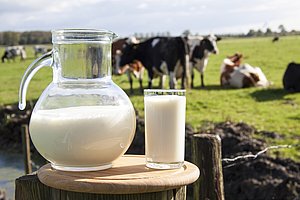 | |
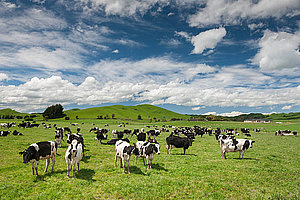 | 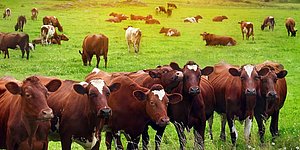 |
Certification of Horticulture Products, Process and Benefits
Horticulture sector is complex with many varieties of products described as fresh and processed vegetables, legumes, nuts, fruits, plants and flowers. Back in the past years, this sector had few clients due to different causes. However, the government has supported this sector, where facilities have been put in place to strengthen the sector byfacilitating the investmentfrom the start point of good agriculture practice and value chain in horticulture value chain. This resulted in the raised number of the certified products and system in the horticulture sector, and the remarkable number of products exported as per reported by National Agriculture Export Development Board
Categories of the horticulture products
Horticulture sector is mainly categorized as fresh and processed products as per described below in sub sectors:
-
Vegetables
-
Raw Fruits and dried fruits
-
Legumes
-
Nuts
-
Plants and Flowers
Characteristics of current certified horticulture products and export status
Currently, horticulture products occupy minimum place in the certified products, the total percentage of certified products from horticulture sector is classified under HACCP certification, Food Safety Management System (FSMS) and S-Mark Certification schemes.
Referring to the annual report of 2020-2021 published by National Agriculture Export Development Board (NAEB), exports of horticulture commodities were not as expected due to many factors, where Vegetable export revenues during 2020/21 decreased by 23.7% compared to the previous fiscal year reported as increased by 9.6%. Fruit export revenues slightly increased by 3.8% compared to previous year where it had reduced by 10.5%. And Floriculture Export quantities and revenues for fiscal year 2020/21 increased by 58.7% and 96.6% due to increased markets.
Benefits of certification for horticulture products
-
Horticulture Certification ensures that the product is safe, genuine produced in line with standards requirements.
-
Increases Government revenue through trade
-
Ensures Full traceability back to the farmer. Reduce losses led to increased profits.
-
Access to local, regional, continental and international markets.
-
Creation of market competition and promotion of business.
-
Increase of consumer safety, confidence and satisfactory.
Apply for certification of horticulture products
Please follow the link below for further S-Mark application requirements
Pictures of Horticulture Products:
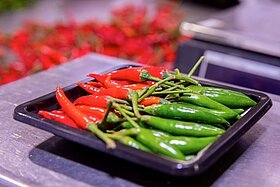 | 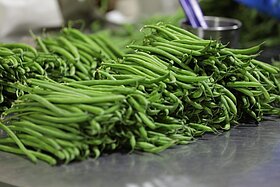 |
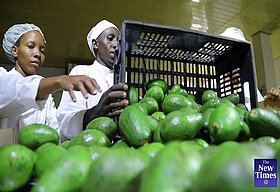 | 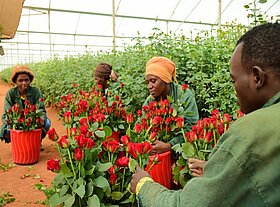 |
CERTIFICATION OF GRAINS, ROOTS AND TUBERS PRODUCTS, PROCESS AND BENEFITS
Grains, roots and tubers are considered as important staple food crop for direct consumption. The Government of Rwanda has undertaken a number of measures which promote post harvest handling, production, processing and trade of grains, roots and tubers products.
Categories of grains, roots and tubers products
Grains, roots and tubers products are mainly Cereals (maize, sorghum, wheat, millet, soybean, barley, rice); Roots (cassava, yam, cocoyam) and Tubers (Irish potato, sweet potato) and can be processed into different products:
-
Whole Flour
-
Processed cereal Flour
-
Composite Flour
-
Fortified single and composite Flour
-
Bakery Products
-
Tubers Flour (e.g Cassava Flour, sweet potato flour)
-
Snacks (e.g cereal Morning snacks, potato chips, Banana Chips)
-
Starch
-
Oil (e.g Soybean Oil)
Benefits of certification of grains, roots and tubers products
As with the processing of the majority of agricultural products in Rwanda, the processing of grains, roots and tubers occurs within the informal sector through petty traders, small unregistered mills or artisanal processing. Formal processing sector, medium and large registered mills and processing enterprises is relatively small and functioning dramatically below installed capacity.
In general grains, roots and tubers products certification against S-Mark helps the consumers as well as manufactures and Government to:
-
Ensure that the consumers can be certain that they are buying genuine safe product, post harvest handling practices are in line with standards’ principles.
-
Ensure that imported cereal grains, roots and tubers have been produced and inspected to equivalent standards. Increases government revenue through trade.
-
Ensure full traceability for back to the farmer. Reduces losses hence increased profits.
-
Access to local, regional, continental and international markets.
-
Certification is a strong marketing tool hence promoting business.
-
Help educate consumers and strengthen demand for products that have been sourced and prepared in accordance with food safety and relevant standards. Hence, increase consumer safety, confidence and satisfaction.
Getting certification for grain, roots and tubers products
So far, Rwanda Standards Board (RSB) has already more than one hundred (100) certified companies in this sector. Some are certified against ISO 22000:2018 Food Safety Management System -Requirements for any organization in the food chain and Food Safety Management System based on RS 184: 2017 Hazard analysis and critical control points (HACCP)
Apply for certification
Go to (Client redirected to the same link for S-Mark application in general for Products Certification.
CERTIFICATION OF ANIMAL FEEDS
Rwanda‘s agriculture contributes about 31% to the Gross Domestic Product, 10% of which comes from livestock sub-sector (NISR, 2017).
The Government of Rwanda has encouraged different stakeholders to invest in animal feed producing industries for the provision of good quality feeds since feed is the first link in the animal food chain. A high-yield production of nutritious, high-quality food products of animal origin starts with quality feed, feed ingredients and the value chain.
Due to shortage in farming land, insufficient and non-controlled commercial feeds, livestock production is challenged by the scarcity of feeds while proper nutrition gives to animals the vigor to grow, develop, and reproduce, and strong immunity to fight off infections. All these advantages lead to more profitable and sustainable agriculture.Feed safety impacts not just the health of animals but also that of producers, handlers and consumers.
The Government of Rwanda enables industries to assure regulators and consumers that their products/ feeds meet the highest standards, where some projects were launched to boost the manufacturers’ skills and awareness to standardization, to be assisted and positioned to the certification level.
Categorization of Animal Feed Products
Animal feeds produced in Rwanda include but not limited to:
-
Cattle feeds
-
Fish feeds
-
Poultry feeds
-
Pig feeds and
-
Dairy Goat feeds
WHY CERTIFICATION OF ANIMAL FEEDS INDUSTRIES/ACTORS?
National Strategic for Transformation (NST1) has different pillars and priorities in which animal feeds production as sector is covered; In the economic transformational pillar, the fourth priority area of NST1, classified as “Industrialization and attain a structure shift in the export base to high value goods and services with the aim of growing exports to 17%”.
Certification is playing a core role in positioning Animal feed actors to the contribution of NST1 achievement with outcome of:
-
Ensuring compliance with regulation and specific quality standard for animal nutrition and productivity
-
Increasing Government revenue through trade
-
Demonstrating to their customers that their products are safe and meet the highest quality
-
Accessing global markets and being compete internationally.
-
Ensuring full traceability control of all production processes and its value chain.
Do you wish to apply?
Please follow the link below for further S-Mark application requirements
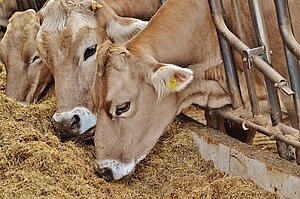 | 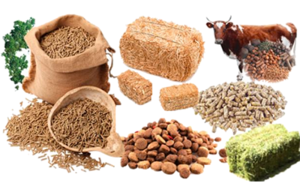 |
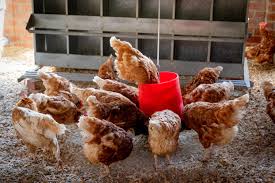 | 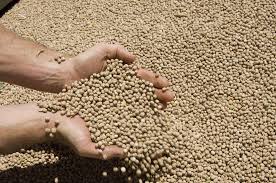 |
Certification of Construction Construction
The construction sector plays an important role in Rwanda's economy both in its contribution to the national economy and employment creation. As one of the key sectors of the economy, the sector comprises residential construction (house construction, multi-unit apartment and townhouse construction), non-residential construction (commercial and industrial building construction and institutional building construction), engineering construction (heavy industry and other non-building construction etc. The durability of buildings and other constructed projects rely on the quality, reliable and durable construction materials; and one of the ways of to guarantee these attributes is Certification.
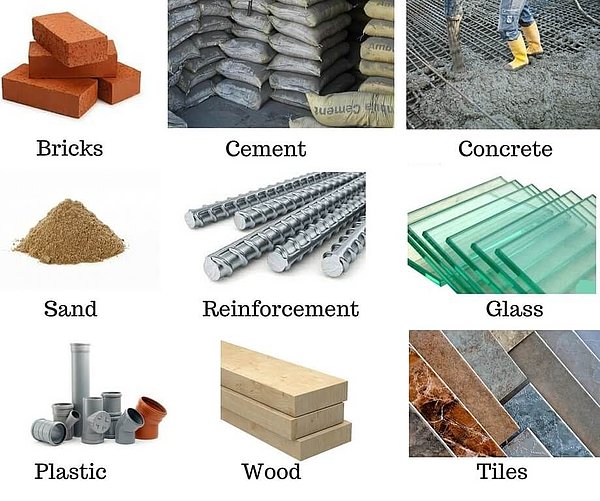
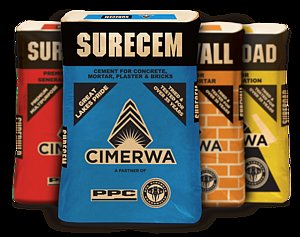 | |
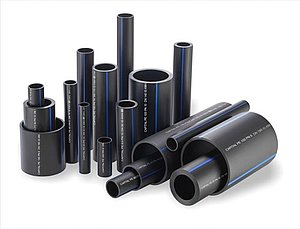 | 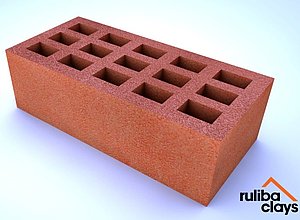 |
 |  |
Rwanda Standards Board (RSB) through the Certification Division offers Certification Services for various construction materials namely cement, steel bars, roofing sheets, Steel hollow sections and profiles, nails, sand, burnt clays bricks and blocks, concrete paving blocks, plastic pipes, electrical wires, paints and varnishes among others.
Benefits of Getting Certified for Construction Materials
-
gives confidence to construction companies, construction materials suppliers and other interested parties that certified construction materials fulfil specified standards requirements
-
is a strong marketing tool hence promoting businesses.
-
reduces production costs through increased efficiency
-
reduces losses hence increased profits
-
increases government revenues through trade promotion
-
increases product safety and consumer satisfaction
Getting Certification for Construction Materials
So far, RSB has granted the certification to numerous construction materials as shown by the Directory of S-Mark Certified products << link of directory>>
Please follow this link >> Apply for certification
ELECTRICAL AND ELECTRONIC PRODUCTS CERTIFICATION
Electrical and electronic products have had significant importance in our day-to-day lives, in this century these kinds of products are increasingly having more impact on our lives. In Rwanda, we have had a large gap in the production of devices (equipment) of this kind, but due to our government’s political will to promote made-in Rwanda has fueled the emergency of the electrical and electronics manufacturing companies and other manufacturing companies in other sectors. The electrical and electronics industries are producing a variety of products and are dynamically changing with time and technology advancement. These products involve daily used appliances to complex electrical and electronics devices and RSB certification for all these products is very helpful and beneficial to these manufacturing industries regardless of the size, type, or technology used. This is so because we ensure that your products meet all the requirements compliance to the standard and guarantee that your products are of the best quality, efficiency, and effective as compared to other business robust competitors.
WHY RSB CERTIFICATION FOR ELECTRICAL AND ELECTRONIC PRODUCTS
Having your products certified can initiate a big profit for your company. So, there is an ultimate need for the S-MARK and MADE IN RWANDA certificate for each and every type of product manufactured.
In this regard, some points are listed below.
-
The RSB certification helps you to build a bridge to get hold of international attention in the world of the economy.
-
The RSB certification shows commitment to customer satisfaction.
-
RSB certification for electrical and electronic products will ultimately assist you in stepping into the global market with no trouble.
-
The RSB certification makes the production, development, and supply of these products safe and efficient.
-
RSB certification can help in setting new goals to be achieved by the company.
-
With the help of RSB certification, the company is helped to satisfy the customer’s expectations by providing them with safe and quality based products.
-
RSB certification of these products helps to create competitive advantages of enterprises over the enterprises that have not had conformity certificates of electrical and electronic equipment.
-
Conformity certification helps to build trust in customers, and assists enterprises to access customers easily in the future as well as when new products are launched.
-
In the RSB certification process, industries are helped in the development, scheduling, and execution of newer technologies efficiently.
GETTING YOUR ELECTRICAL AND ELECTRONIC PRODUCTS CERTIFIED.
To get your products certified, you have to follow this certification process.
-
Filling in the application
-
Certification fee payment
-
To conduct an audit of the production line and take samples
-
Product sampling and testing
-
Submission of the audit report to a client
-
Closure of corrective actions (if any)
-
Certification decision by an independent committee
-
Issuance of certificate of conformity
-
Market surveillance
-
Re-certification (after 2 years)
Note that the time frame mainly depends on client’s readiness.
So, far Rwanda Standards Board(RSB) has certified only one company against RS IEC 60227-1:2007 Conductors of insulated cables – Specification.
The wood sector plays an important role in Rwanda's economy both in its contribution to the national economy and employment creation. In fact, the sector has the potential to generate substantial off farm employment, increase exports, increase incomes and widen the tax base.
As one of the key sectors of the economy, the sector comprises of wood (Chairs, sitting tables, and wood related products such as Corrugated cartons, printing papers, note books, toilet paper, baby diaper, baby wipes etc
The certification of wood and wood related products provides the guarantee that the consumers are safe.

Timber factory
|
Play board |
Corrugated Cartons from wood subsidiaries |
Certified wood related products
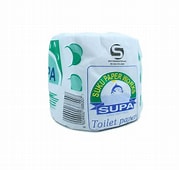 | 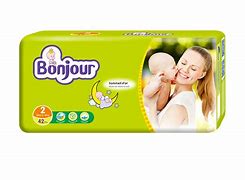 |
Benefits of Getting Certified for wood and furniture products
-
gives confidence to the consumers that the wood related products fulfil the applicable standards requirements.
-
Certification is a strong marketing tool hence promoting businesses
-
reduces production costs through increased efficiency
-
reduces losses hence increased profits
-
increases government revenues through trade promotion
-
increases product safety and consumer satisfaction
Getting Certification for wood and furniture products
-
So far, RSB has granted the certification to numerous wood and furniture products
-
as shown by the Directory of S-Mark Certified products
-
Please follow this link to apply for certification for your product
CHEMICAL COSMETICS AND CONSUMER PRODUCTS CERTIFICATION
What is certification?
Certification is a third party attestation following assessment, that attributes, characteristics, quality, or status of individuals or organizations, goods or services, procedures or processes are in accordance with established standards.
The overall aim of certifying is to give confidence to all interested parties that (certified) individuals or organizations, goods or services, procedures or processes fulfill specified requirements.
Certification Schemes
Currently, RSB is offering Certification Services to chemical cosmetic products with:
![]()
Cosmetics refer as products "intended to be applied to the human body for cleansing, beautifying, promoting attractiveness, or altering the appearance without affecting the body's structure or functions"
Cosmetics have been in use for thousands of years, with ancient Egyptians and Sumerians using them. In Europe, use of cosmetics continued into the middle ages where the face was whitened and the cheeks rouged though attitudes towards cosmetics varied throughout time, with the use of cosmetics being openly frowned upon at many points in Western history. Regardless of the changes in social attitudes towards cosmetics, ideals of appearance were occasionally achieved through the use of cosmetics by many. Though there are a large number of differing cosmetics used for a variety of different purposes, all cosmetics are typically intended to be applied externally.
These products can be applied to the face (on the skin, lips, eyebrows and eyes), to the body (on the skin, in particular the hands and nails), and to the hair. These products may be intended for use as skincare, personal care or to alter the appearance, with the subset of cosmetics known as makeup primarily referring to products containing colour pigments intended for the purpose of altering the wearer's appearance; some manufacturers will distinguish only between "decorative" cosmetics intended to alter the appearance and "care" cosmetics designed for skincare and personal care.

Rwanda Standard bard has started certifying cosmetics since…………….and it had led to improvement of different cosmetic industries in quality, production and trade market as well. In cosmetics there are more than thousands standards that are currently used depending on the type / kind of product in order to ensure the compliance or quality of cosmetic products against respective standard. Rwanda Standard Board in assessing cosmetic products, we adopted Rwanda standards, but we also use East African standards and International Standards.
All chemical cosmetics in Rwanda has to comply with the standard RS ISO 22716: 2007 Cosmetics — Good Manufacturing Practices (GMP) — Guidelines on Good Manufacturing Practices. This International Standard gives guidelines for the production, control, storage and shipment of cosmetic product. The standard is based on other quality management systems, ensuring smooth integration with such systems as ISO 9001 or the British Retail Consortium (BRC) standard for consumer products. Therefore, it combines the benefits of GMP, linking cosmetic product safety with overall business improvement tools that enable organisations to meet global consumer demand for cosmetic product safety certification.
Rwanda has different cosmetic industries and many of them are currently certified with either Local, East African or international standards, this ensure the safety of consumers at their market place. Those industries manufactures different products like lotions, hand sanitizers, bleach, liquid and solid soaps, detergents, chalks, glycerine, etc.
BENEFITS OF CERTIFICATION
- It gives confidence to interested parties that certified products, procedures or processes fulfill specified requirements.
- It is a strong marketing tool hence promoting business
- Reduces production/service costs through increased efficiency
- Reduces losses hence increased profits
- Increases government revenue through trade
- Increased consumer safety and satisfaction
There are goods and chemicals that are PROHIBITED and RESTRICTED in Rwanda,
such as:
-
Narcotic drugs under international control,
-
Hazardous wastes and their disposal as provided for under the base conventions,
-
All soaps and cosmetic products containing mercury.
Agricultural Chemicals such as:
(i) 2.4 - T
(ii) Aldrin
(iii) Caplafol
(iv) Chlordirneform l Chlorobenxilate l DDT
(v) Dieldrin
(vi) 1.2 - Dibroacethanel (EDB)
(vii) Flouroacelamide
(viii) HCH
(ix) Hiplanchlor
(x) Hoscachlorobenzene
(xi) Lindone
(xii) Mercury compounds
(xiii) Monocrolophs (certain formulations)
(xiv) Methamidophos
(xv) Phospharrmion
(xvi) Methyl - parathion
(xvii) Parathion
Industrial Chemicals:
(i) Crocidolite
(ii) Polychlorominatel biphenyls (PBB)
(iii) Polyuchorinted Biphenyls (PCB)
(iv) Polychlororinated Terphyenyls (PCT)
(v) Tris (2.3 dibromopropyl) phosphate
(vi) Methylbromide (to be phased out in accordance with the Montreal Protocol by 2007).
Certification of Machinery and Mechanical Tools
Certification is an attestation following the assessment done against a set of requirements based primarily on established standards. Rwanda Standard Board offers certification for products and systems. Certification of machinery and mechanical tools is a new product certification service recently introduced. With Rwanda’s objectives to embark on product diversification and trade promotion, machines and mechanical tools products are badly needed in different areas such as agriculture, food processing plants, mining, construction, farming andare needed for providing trusted products and services. The certification of machinery and mechanical tools products gives confidence to all interested parties that their quality, status and characteristics fulfill all the health and safety requirements.
Benefits for certification of machinery and mechanical tools products
Certification of machinery and mechanical tools:
-
Attests that machines and mechanical tools are manufactured with high safety, quality and design. Hence, it reduces the field failure rate and design flaws
-
It is a powerful marketing tool for all manufacturers especially for exports. The products are recognized on market.
-
Certification of machinery and mechanical tools product boosts market competitiveness as when S-Mark is displayed on the product, it gives it a real point of sale differentiation.
Examples of machines that can be certified:
-
Rice husks moving machines,
-
Maize shelling machines,
-
Grass cutting machines for animal feed,
-
Food processing machines,
-
Thresher machines
-
Bottling machines
-
Bottle capping machines (manual, pneumatic,)
-
Concrete mixer machine
-
Wheelchairs
-
Motorcycles
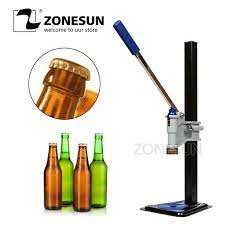 | 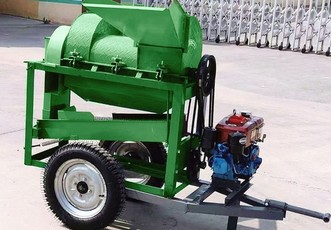 |
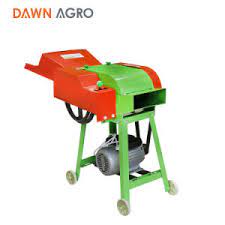 | 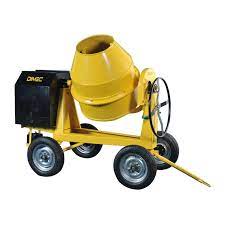 |

Certification of Beverages, process and benefits
1. Introduction
The Rwanda Standards Board (RSB) is a leading public institution mandated of developing and publishing national standards, offering trainings and technical assistance related to NQI services, performing quality testing, metrology, and certification services in Rwanda. RSB, as an internationally accredited body, has so far developed more than 2800 products and service standards, of which more than 30% are food-related, including standards for beverages (water, coffee, tea, soft drinks, liquors, beers and alcoholic beverages).
RSB has already certified more than 300 beverages such as Beers, Banana and Plant-based alcoholic beverages, distilled alcoholic beverages, soft drinks, Coffee and Tea and water. The activity is continuously provided to the new and existing clients.
2. How is it beneficially to have certified beverages?
In general beverage certified s with S-Mark have a wide range of benefits to the consumers as well as manufactures and Government such as: Building Confidence & Trust to interested parties, reducing losses and increasing profits, Increasing consumer safety & satisfaction as well as Increasing government revenue
3. Export potential and economic contribution of certified beverages
Locally produced beverages have all significant impact in Economic contribution in Rwanda but most potential for export and highly generation of income are Coffee and Tea.
Coffee plays a major role in the economy of the country, contributing significantly to foreign exchange earnings and to the modernisation of rural economy.
Other remaining beverages are not highly exported but they are also consumed locally and they adequately contribute to revenues, generating employment as well as welfare of the Rwandan Population.
4. Do you wish to apply???
>> Apply for certification
